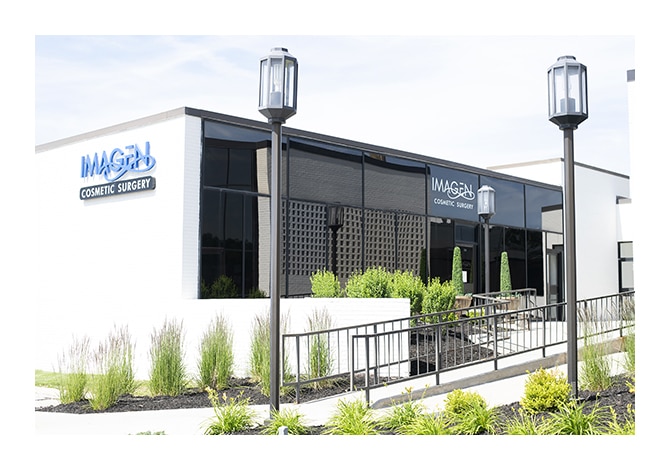Key Takeaways
- Follow Recovery Timeline: Understand the typical recovery phases after implant surgery and adhere to your surgeon’s timeline to ensure optimal healing.
- Immediate Post-Op Care: Prioritize rest and follow all post-operative instructions closely during the initial days after surgery, including implant recovery time, sutures, and the recovery process as advised by your plastic surgeon.
- Manage Pain and Swelling: Use prescribed medications and apply cold compresses to control pain and reduce swelling effectively during the recovery process after implant surgery by a plastic surgeon, ensuring proper care of sutures.
- Incision and Scar Care: Keep incisions clean, apply recommended ointments, and avoid exposing scars to sunlight to minimize scarring as advised by your plastic surgeon during office visits.
- Nutrition and Activity: Maintain a balanced diet and gradually resume physical activities as advised by your healthcare provider’s office.
- Stay in Touch with Surgeons: Regularly communicate with your surgeon’s office for follow-up appointments and to address any concerns during the recovery process.
Understanding Recovery Timeline
Initial Days
The first few days after chin surgery are crucial. Swelling and bruising are common. You might feel discomfort or pain. Doctors usually prescribe pain medication to manage this. It’s important to rest and avoid strenuous activities.
First Week
During the first week, you should focus on recovery. Keep your head elevated to reduce swelling. Apply ice packs as directed by your doctor. Follow a soft food diet to avoid straining your jaw.
Two Weeks
By the second week, swelling begins to subside. Many people feel well enough to return to work within two weeks. However, it’s essential to follow your surgeon’s advice about resuming normal activities.
Three Weeks
At three weeks post-surgery, most of the visible swelling has reduced. You can start light exercises but avoid heavy lifting or intense workouts. Always consult with your doctor before making any changes.
Final Results
Final results from chin augmentation may take several months to appear. It takes time for the tissues to settle and for all swelling to go down completely. Most patients see significant improvement by three months, but full results can take up to six months.
Immediate Post-Op Care
Liquid Diet
In the first few days after chin surgery, it is crucial to follow a liquid or soft food diet. Solid foods can strain your jaw and chin area. This can interfere with healing. Smoothies, soups, and mashed potatoes are good options. These foods provide necessary nutrients without causing discomfort.
Rest
Rest is essential during the initial recovery period. Avoid strenuous activities that might stress your neck and chin area. Minimal movement helps reduce swelling and speeds up recovery. Spend time lying down with your head elevated to minimize swelling.
Keep Area Clean
Keeping the chin area clean is vital to prevent infection. Follow your doctor’s instructions for cleaning the surgical site. Use gentle soap and water to clean around the dressing. Pat dry carefully with a clean towel.
Monitor Dressing
The dressing on your chin needs regular monitoring. Check if it stays dry and intact at all times. Change it as advised by your surgeon to ensure proper healing. A well-maintained dressing protects against bacteria and other contaminants.
Pain Management
You may experience pain post-surgery. Over-the-counter pain medications can help manage this discomfort. Always consult your doctor before taking any medication. They might prescribe specific pain relief options suited for you.
Swelling Control
Swelling is common after chin surgery. Apply cold compresses to reduce it effectively. Do not apply ice directly on the skin; use a cloth or towel as a barrier. Follow this routine several times a day for better results.
Follow-Up Visits
Attend all scheduled follow-up visits with your surgeon. These visits allow the doctor to monitor your healing progress closely. They will also address any concerns or complications that might arise during recovery.
Pain and Swelling Management
Pain Medication
Doctors often prescribe pain medications to manage discomfort after chin surgery. These medications can include over-the-counter options like ibuprofen or stronger prescriptions. Taking these medications as directed helps control pain effectively. Skipping doses may lead to increased discomfort. Some patients may also receive antibiotics to prevent infections.
Cold Compresses
Cold compresses are useful for reducing swelling and bruising. Apply a cold pack to the surgical area for 15-20 minutes at a time. This should be done several times a day, especially in the first 48 hours post-surgery. Cold compresses help constrict blood vessels, which reduces swelling and minimizes bruising. Always wrap the cold pack in a cloth to protect your skin.
Tightness and Tenderness
Experiencing tightness and tenderness is normal after chin surgery. These symptoms usually peak within the first few days but gradually improve over time. Keeping your head elevated can help reduce these sensations. Using pillows to prop yourself up while sleeping can make a big difference.
Alleviating Symptoms
There are several ways to alleviate symptoms of tightness and tenderness:
- Gentle massage around the surgical area can improve circulation.
- Avoid strenuous activities that might strain your neck or jaw.
- Stick to soft foods that require minimal chewing.
Rest and Medication Tips
Frequent Rest
Rest is crucial after chin surgery. It helps the body heal. Schedule frequent rest periods throughout the day. Aim for short, regular breaks rather than one long rest. This approach reduces strain on your body.
Avoid strenuous activities during recovery. Light walking is acceptable but avoid heavy lifting or intense exercise. Listening to your body is essential; stop and rest if you feel tired.
Pain Medication
Pain medication helps manage discomfort after surgery. Doctors often prescribe painkillers like ibuprofen or acetaminophen. Follow the prescribed dosage carefully. Do not take more than recommended.
Take pain medication with food to prevent stomach issues. If pain persists despite medication, contact your doctor immediately.
Infection Prevention
Preventing infection is vital for a smooth recovery. Antibiotics may be prescribed post-surgery. Take them as directed without missing doses. Finish the entire course even if you feel better before it’s done.
Keep the surgical area clean and dry. Avoid touching it with unwashed hands to reduce infection risk.
Sleeping Positions
Sleeping positions can affect swelling and healing speed. Elevate your head while sleeping to reduce swelling. Use extra pillows or a wedge pillow for support.
Sleep on your back to protect the surgical area from pressure or accidental bumps during sleep. Avoid sleeping on your side or stomach until fully healed.
Incision and Scar Care
Gentle Cleaning
Clean incision sites gently. Use mild soap and water. Pat the area dry with a clean towel. Do not scrub or rub the incisions. This can cause irritation or reopen wounds.
Avoiding Sunlight
Keep scars out of direct sunlight. Sun exposure can darken scars, making them more visible. Wear protective clothing or use sunscreen on the scars if you must be outside.
Silicone Sheets
Use silicone sheets to minimize scar appearance. These sheets help flatten and fade scars over time. Apply them as directed by your doctor.
Scar Gels
Scar gels are another option for scar care. They work similarly to silicone sheets. Apply the gel directly to the scar daily.
Dressing Changes
Change dressings regularly to prevent infection. Follow your doctor’s instructions on how often to change them. Always wash your hands before touching dressings.
Infection Signs
Watch for signs of infection such as redness, swelling, or unusual discharge. Contact your doctor if you notice any of these symptoms.
Bleeding Control
If there is bleeding, apply gentle pressure with a clean cloth until it stops. Avoid picking at scabs as this can lead to more bleeding and scarring.
Nutrition and Activity Resumption
Nutritious Diet
A nutritious diet helps the body heal. Eating foods rich in vitamins A, C, and E is essential. These vitamins support tissue repair and reduce inflammation. Vitamin A can be found in carrots, sweet potatoes, and spinach. Vitamin C is abundant in citrus fruits like oranges and lemons. Vitamin E is present in nuts, seeds, and green leafy vegetables.
Protein also plays a crucial role. It aids in repairing tissues damaged during surgery. Good sources include lean meats, fish, eggs, beans, and tofu. Drinking plenty of water keeps you hydrated and helps flush out toxins from the body.
Reintroducing Solid Foods
After chin surgery, starting with soft foods is recommended. Foods like yogurt, mashed potatoes, and smoothies are easy to consume without straining your jaw. Gradually reintroduce solid foods as comfort allows.
Usually, patients can start eating solid foods within one to two weeks post-surgery. Always listen to your body; if chewing causes pain or discomfort, revert to softer options until healing progresses further.
Physical Activities
Resuming physical activities should be done cautiously. Light activities like walking can begin a few days after surgery to promote blood circulation without causing strain.
Avoid strenuous exercises for at least four weeks. Engaging in intense workouts too soon can increase swelling and risk complications. When returning to exercise:
- Start with low-impact activities such as gentle yoga or stretching.
- Increase intensity gradually over several weeks.
- Avoid contact sports until fully healed.
Consulting with your surgeon before resuming any physical activity ensures safe recovery.
Monitoring Progress
Regular follow-ups with your surgeon are critical during recovery. They monitor healing progress and provide personalized advice on diet and activity levels.
Keep a journal of your daily food intake and physical activities. Note any discomfort or issues arising from specific foods or exercises.
Long-Term Healing and Follow-Ups
Follow-Up Appointments
Patients must attend all follow-up appointments. Surgeons need to monitor the healing process closely. These visits help address any concerns or questions that arise. Regular check-ups ensure that the chin surgery recovery is on track.
Missing these appointments can lead to unnoticed complications. Always keep your surgeon informed about your progress. This communication helps manage any unexpected issues promptly.
Healing Timeline
Long-term healing from chin surgery varies among patients. Initial swelling and bruising may last a few weeks. However, full recovery can take several months.
Most people see significant improvements within three months. The final outcome is usually apparent after six to twelve months. Patience is key during this period as the body adjusts.
Expected Results
The appearance of your chin will gradually improve over time. Swelling decreases, and the structure becomes more defined. It’s important not to judge results too early.
Facelift procedures combined with chin surgery may extend the healing time. Your surgeon will provide specific guidelines based on your needs and profile.
Signs of Complications
Certain signs may indicate complications during recovery:
- Persistent pain or swelling
- Unusual discharge from the incision site
- Fever or chills
- Redness spreading around the area
If you experience any of these symptoms, contact your surgeon immediately. Early intervention can prevent serious issues from developing.
Emotional Impact
Healing isn’t just physical; it affects emotions too. Some patients feel anxious about their appearance during recovery. It’s normal to have concerns about how you look while healing.
Talking to others who have undergone similar procedures can be comforting. Support groups or online forums offer valuable insights and reassurance.
Lifestyle Adjustments
Adjusting daily activities aids in long-term healing:
- Avoid strenuous exercise for several weeks.
- Protect the surgical area from direct sunlight.
- Follow dietary recommendations for optimal recovery.
These adjustments support proper healing and reduce risks of complications.

Communicating with Surgeons
Reporting Symptoms
After chin surgery, it is crucial to report any unusual symptoms. These can include excessive swelling, severe pain, or signs of infection like redness and fever. Patients should not ignore these symptoms as they could indicate complications. Immediate communication with the surgeon can prevent further issues.
Preparing Questions
Preparing a list of questions for follow-up visits helps ensure all concerns are addressed. Important questions might include:
- How long will the recovery take?
- What activities should be avoided?
- Are there specific dietary restrictions?
Having this list ready can make consultations more productive.
Following Instructions
Following the surgeon’s specific post-op instructions is vital for optimal recovery. These instructions may cover how to care for sutures, what medications to take, and when to resume normal activities. Adhering strictly to these guidelines helps in achieving the best results from the surgery.
Contact Information
Keeping contact information for the surgeon handy is essential. This includes phone numbers and email addresses. In case of emergencies or urgent questions, having this information readily available ensures quick communication.
Easing Recovery Time
Light Activities
Engage in light activities during recovery. Gentle walks can help maintain circulation. Avoid strenuous exercises for at least a week.
eone recovering from chin surgery should not lift heavy objects. Keep daily movements minimal to avoid straining the surgical area.
Support System
Seek support from friends or family members. They can assist with household chores and errands. This helps reduce physical pressure on the patient.
Having someone around also provides emotional support. It is beneficial during times of discomfort and stress.
Comfortable Space
Set up a comfortable recovery space before surgery. Choose a quiet room with soft pillows and blankets. Ensure easy access to essential items like medications and water.
A well-prepared space promotes rest and healing. It reduces the need for unnecessary movements, aiding quicker recovery.
Managing Discomfort
Expect some discomfort after surgery. Pain medications prescribed by the surgeon can help manage this pain. Follow dosage instructions carefully.
Applying cold packs can reduce swelling and numb pain. Use them for 10-15 minutes several times a day during the first few days.
Return to Work
Plan your return to work based on your recovery progress. Most people can resume non-strenuous jobs within a week or two.
Consult your surgeon before returning to work, especially if your job involves physical activity. Gradual return helps prevent complications.
Implant Recovery Time
If implants are involved, recovery might take longer. Follow specific care instructions provided by your surgeon for implant sites.
Monitor any unusual symptoms like excessive swelling or fever. Report these immediately to ensure proper healing.
Summary
Recovering from chin surgery can be a journey, but understanding each step makes it manageable. By following the outlined tips on post-op care, pain management, and nutrition, you ensure a smoother healing process. Keep communicating with your surgeon and pay attention to long-term follow-ups.
Take charge of your recovery. Prioritize rest, follow medical advice, and stay patient. Your diligence now leads to better results later. For more insights and expert guidance, reach out to your healthcare provider or join support communities. You’ve got this!
Frequently Asked Questions
How long does chin surgery recovery take?
Full recovery from chin surgery typically takes 6-8 weeks. Initial swelling and bruising subside in the first 2-3 weeks.
What should I expect immediately after chin surgery?
Expect swelling, bruising, and mild discomfort. Follow your surgeon’s post-op care instructions closely to minimize complications.
How can I manage pain and swelling after chin surgery?
Use prescribed pain medication and apply cold compresses. Keep your head elevated to reduce swelling.
When can I resume normal activities after chin surgery?
Light activities can be resumed after 1-2 weeks. Avoid strenuous exercise for at least 4-6 weeks or as advised by your surgeon.
How should I care for my incision and scars post-surgery?
Keep the incision clean and dry. Apply any recommended ointments and avoid direct sunlight on scars to promote healing.
What foods should I eat during recovery from chin surgery?
Focus on soft foods like soups, smoothies, and mashed potatoes. Avoid hard or chewy foods that strain your jaw.
Why is it important to communicate with my surgeon during recovery?
Regular communication ensures proper healing, allows for timely adjustments in care, and addresses any concerns promptly.





